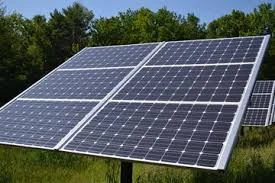Exploring Benefits and Considerations for Installing Solar Panels on Your Home
The Benefits of Home Solar Installation
As the world increasingly turns towards renewable energy sources, the trend of installing solar panels in private residences has gained significant momentum. Home solar installation not only represents a commitment to sustainability but also offers numerous benefits, both environmentally and economically.
Environmental Impact
The most compelling reason for homeowners to consider solar installation is its positive impact on the environment. Traditional electricity generation often relies on fossil fuels, which release harmful greenhouse gases into the atmosphere, contributing to climate change. By harnessing the power of the sun, which is abundant and renewable, households can significantly reduce their carbon footprint. In fact, studies suggest that a typical home solar system can offset several tons of carbon dioxide emissions each year.
Moreover, solar energy is a clean source of power that doesn't produce air or water pollution. This means that as more homes switch to solar energy, there is less dependency on coal and natural gas, resulting in healthier air quality and the preservation of natural resources. By adopting solar technology, homeowners become active participants in the fight against global warming and environmental degradation.
Economic Advantages
Beyond ecological considerations, home solar installation can yield significant financial benefits. The initial investment in solar panels can be daunting, but with advancements in technology and increased competition among manufacturers, the cost of solar systems has dropped dramatically in recent years. Tax incentives and rebates also help alleviate upfront expenses. In many regions, homeowners can benefit from federal and state tax credits, which can cover a sizeable portion of installation costs.
Once installed, solar panels can drastically reduce or even eliminate electricity bills. As utility rates continue to rise, homeowners who generate their own electricity can shield themselves from these increasing costs, enjoying long-term savings. Many also sell excess energy back to the grid, creating potential income streams and increasing their overall return on investment.
home solar installation

Energy Independence and Security
Another noteworthy benefit of home solar installation is the sense of energy independence it provides. Relying on the grid leaves homeowners vulnerable to electricity price spikes and power outages. With solar panels, homes generate their own energy, allowing for greater control over energy consumption. Additionally, for those who invest in battery storage systems, there’s the possibility of accessing power even during outages or at night when the sun isn’t shining.
This independence is particularly appealing in areas prone to natural disasters or extreme weather conditions where power lines may be disrupted. Solar energy can provide a reliable source of electricity, ensuring that households remain functional even in adverse conditions.
Increased Home Value
Home solar installation can also significantly boost property values. As renewable energy becomes more desirable, homes equipped with solar panels often sell for a premium. Potential buyers view them as valuable assets that will save them money on energy costs. Numerous studies have shown that homes with solar systems sell faster than their non-solar counterparts, making solar installation not just a wise financial decision, but also a strategic move when considering property value.
Conclusion
In summary, the advantages of home solar installation are multifaceted. From reducing environmental impact and achieving energy independence to realizing economic savings and increasing property values, the shift towards solar energy presents an attractive opportunity for homeowners. As technology continues to evolve and the world pushes toward more sustainable practices, now is an opportune time for individuals to consider solar energy solutions that will benefit not only their homes but also the planet. Transitioning to solar energy is not just a personal investment but a collective step towards a more sustainable future.
-
Unlocking Energy Freedom with the Off Grid Solar InverterNewsJun.06,2025
-
Unlock More Solar Power with a High-Efficiency Bifacial Solar PanelNewsJun.06,2025
-
Power Your Future with High-Efficiency Monocrystalline Solar PanelsNewsJun.06,2025
-
Next-Gen Solar Power Starts with Micro Solar InvertersNewsJun.06,2025
-
Harnessing Peak Efficiency with the On Grid Solar InverterNewsJun.06,2025
-
Discover Unmatched Efficiency with the Latest String Solar InverterNewsJun.06,2025







